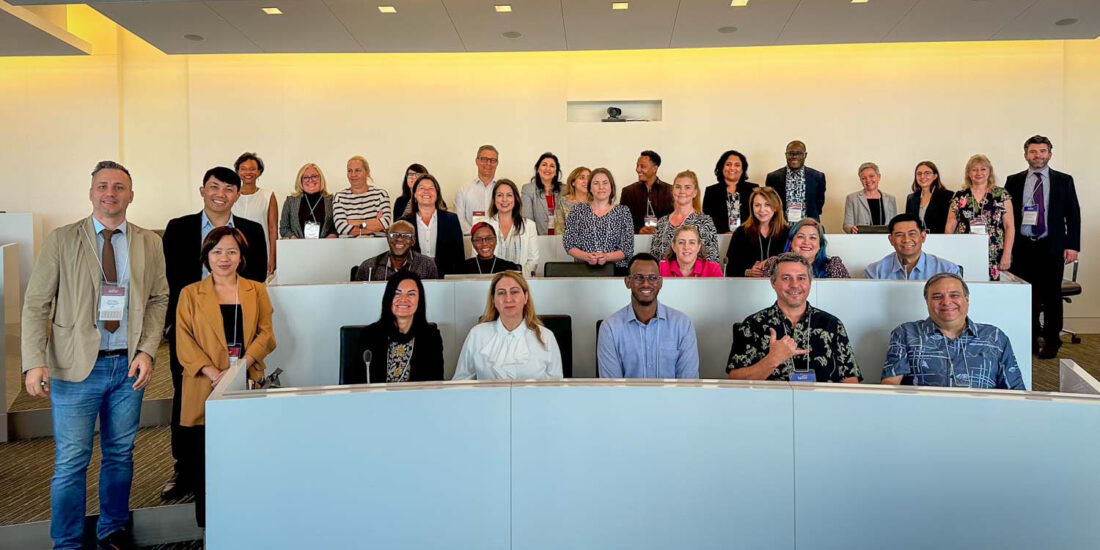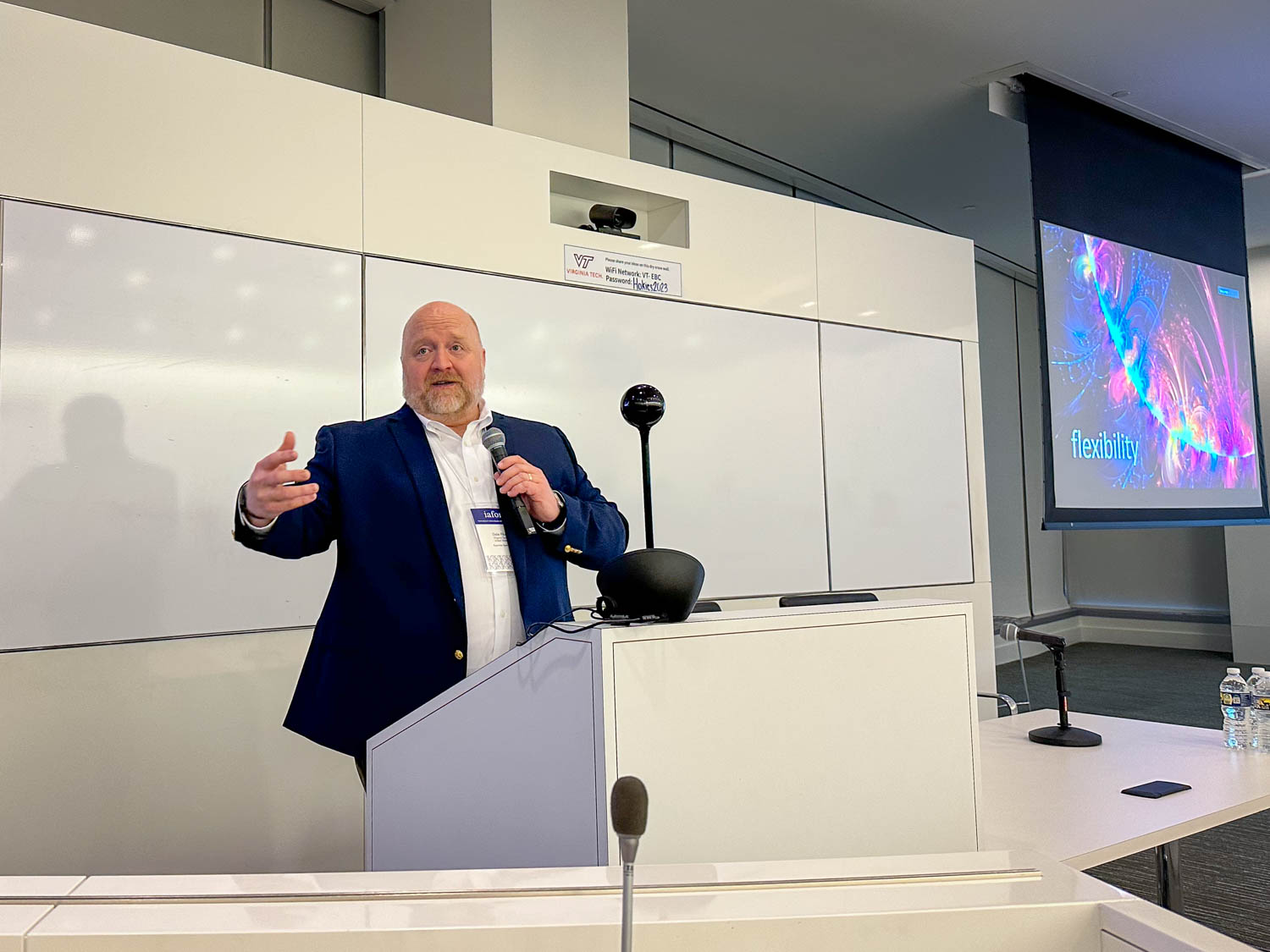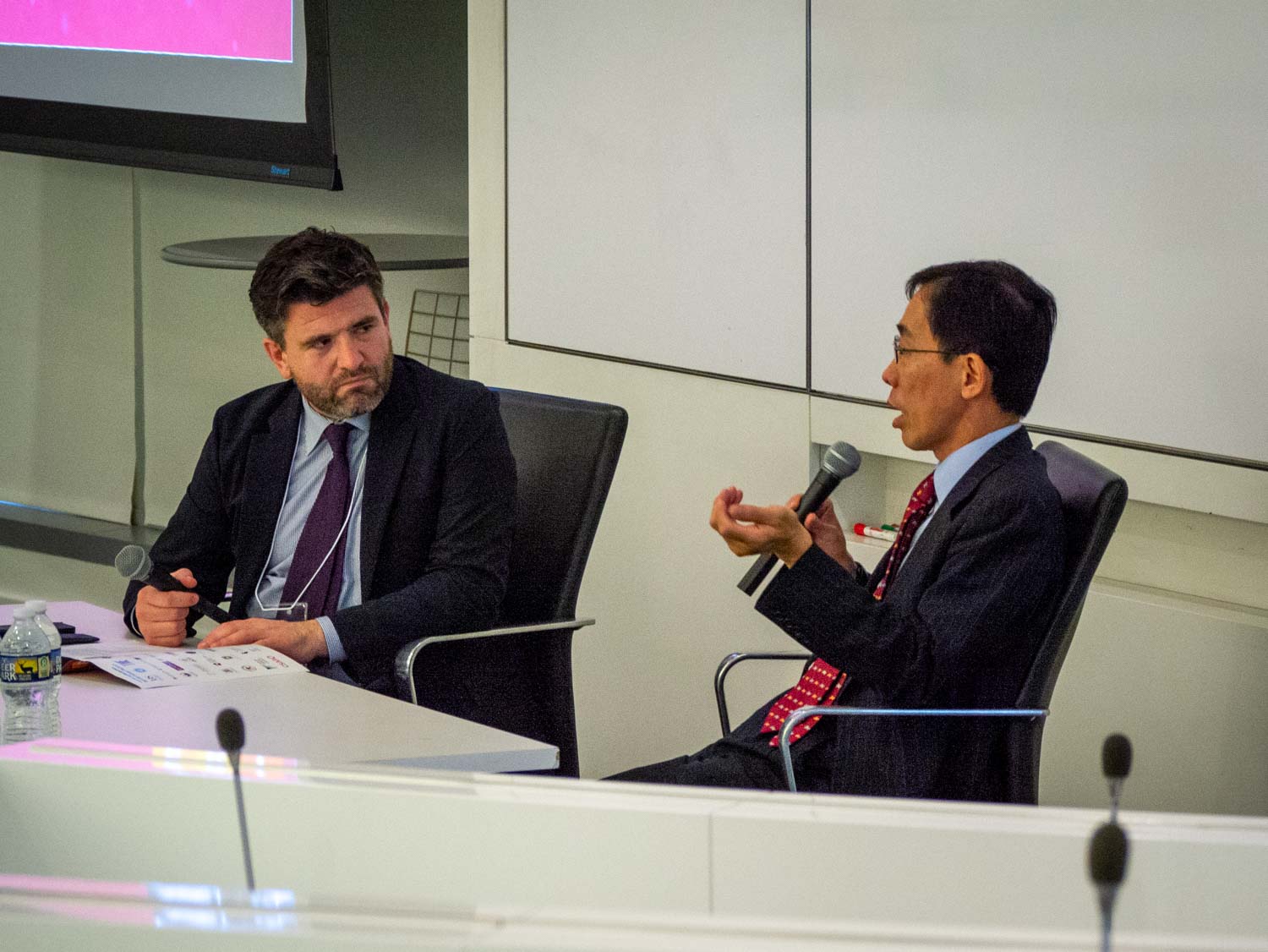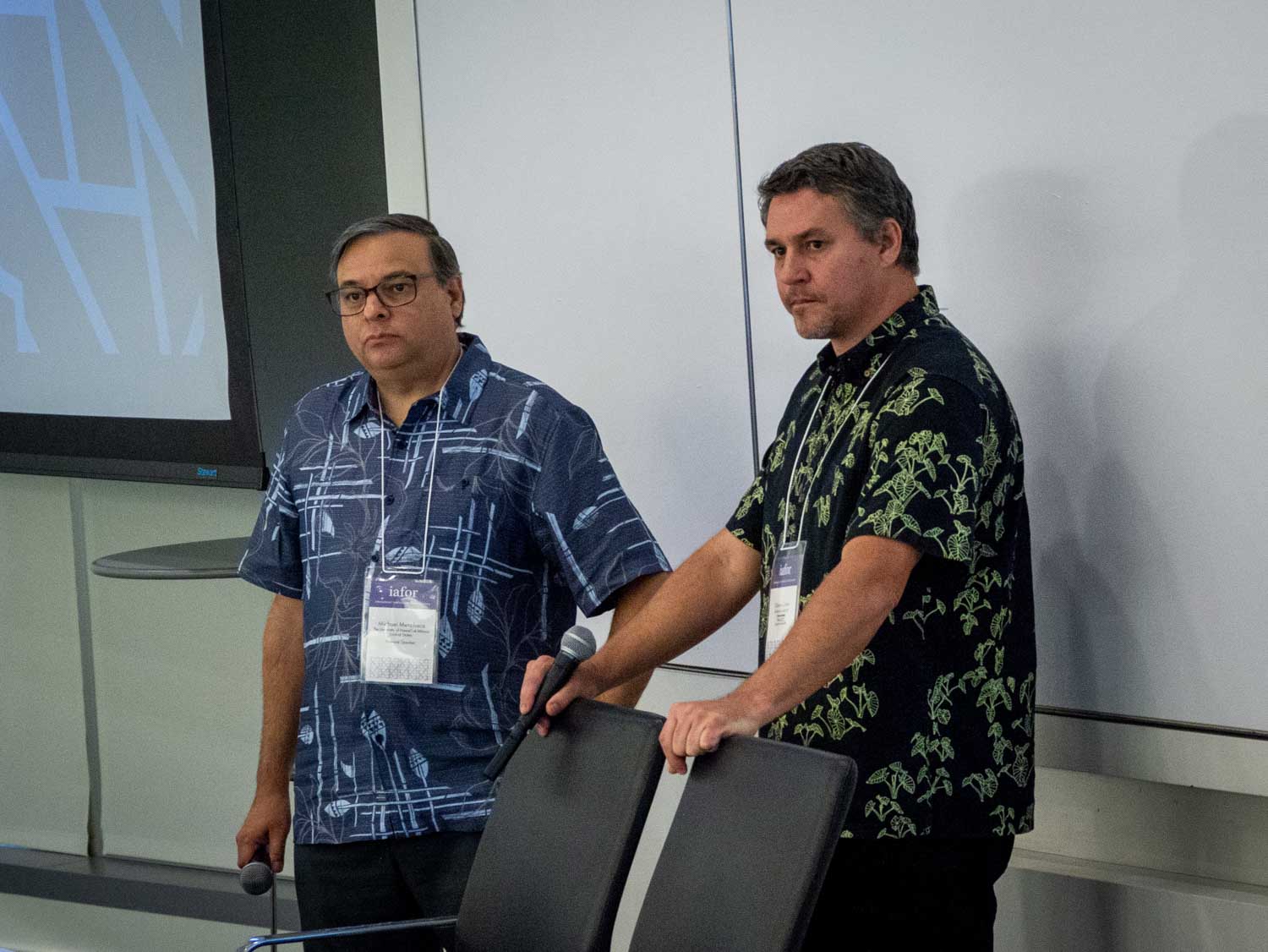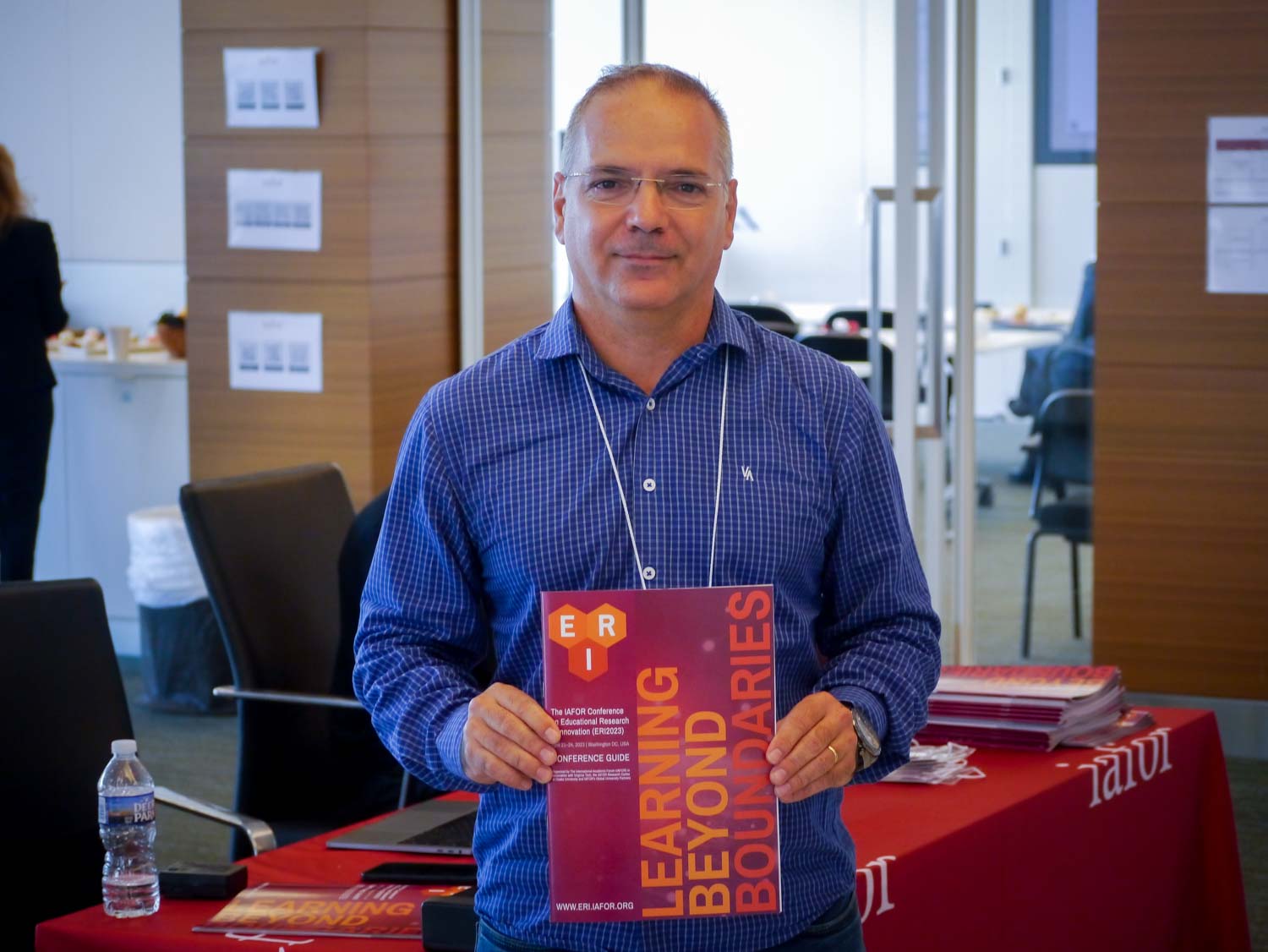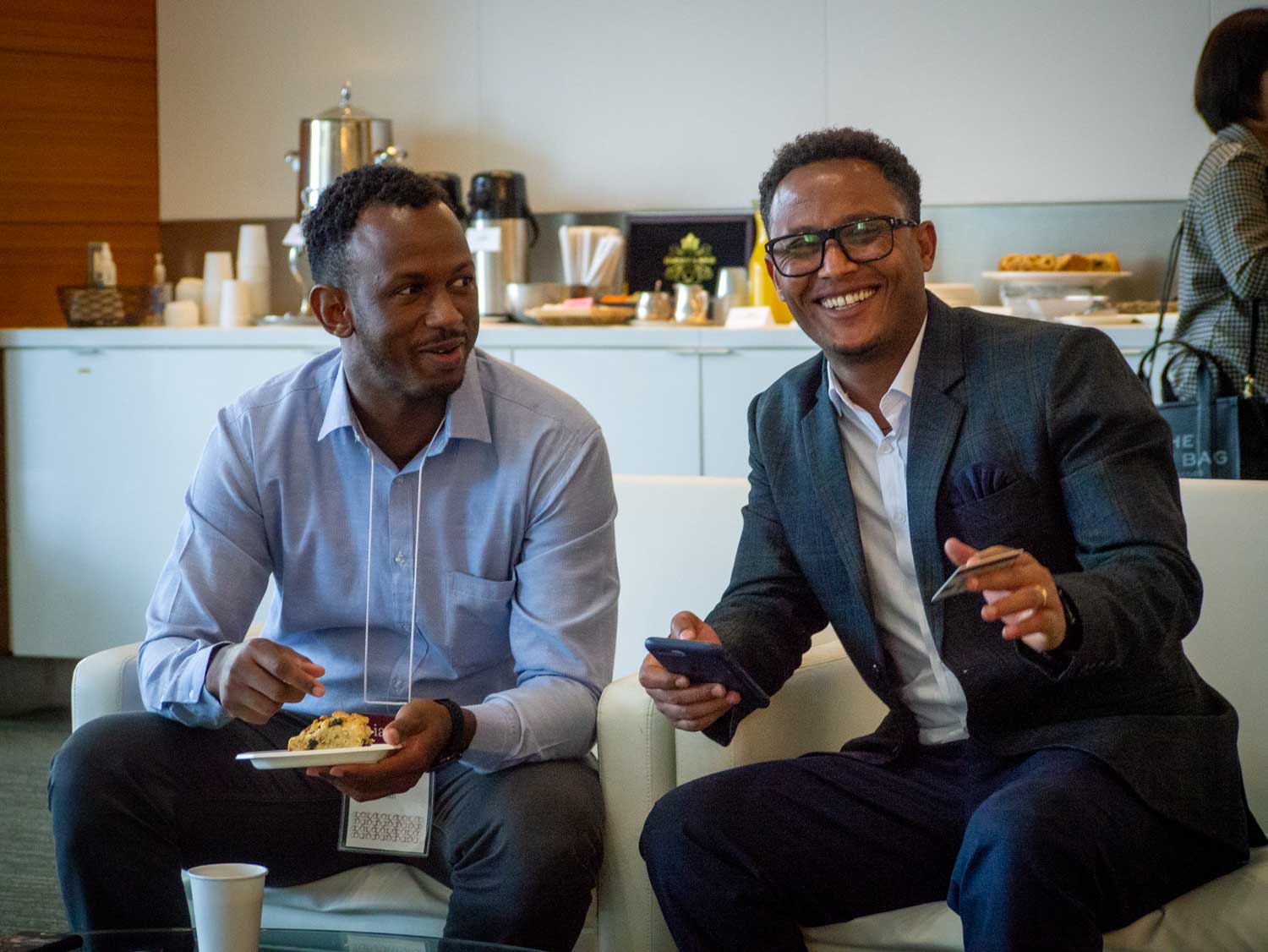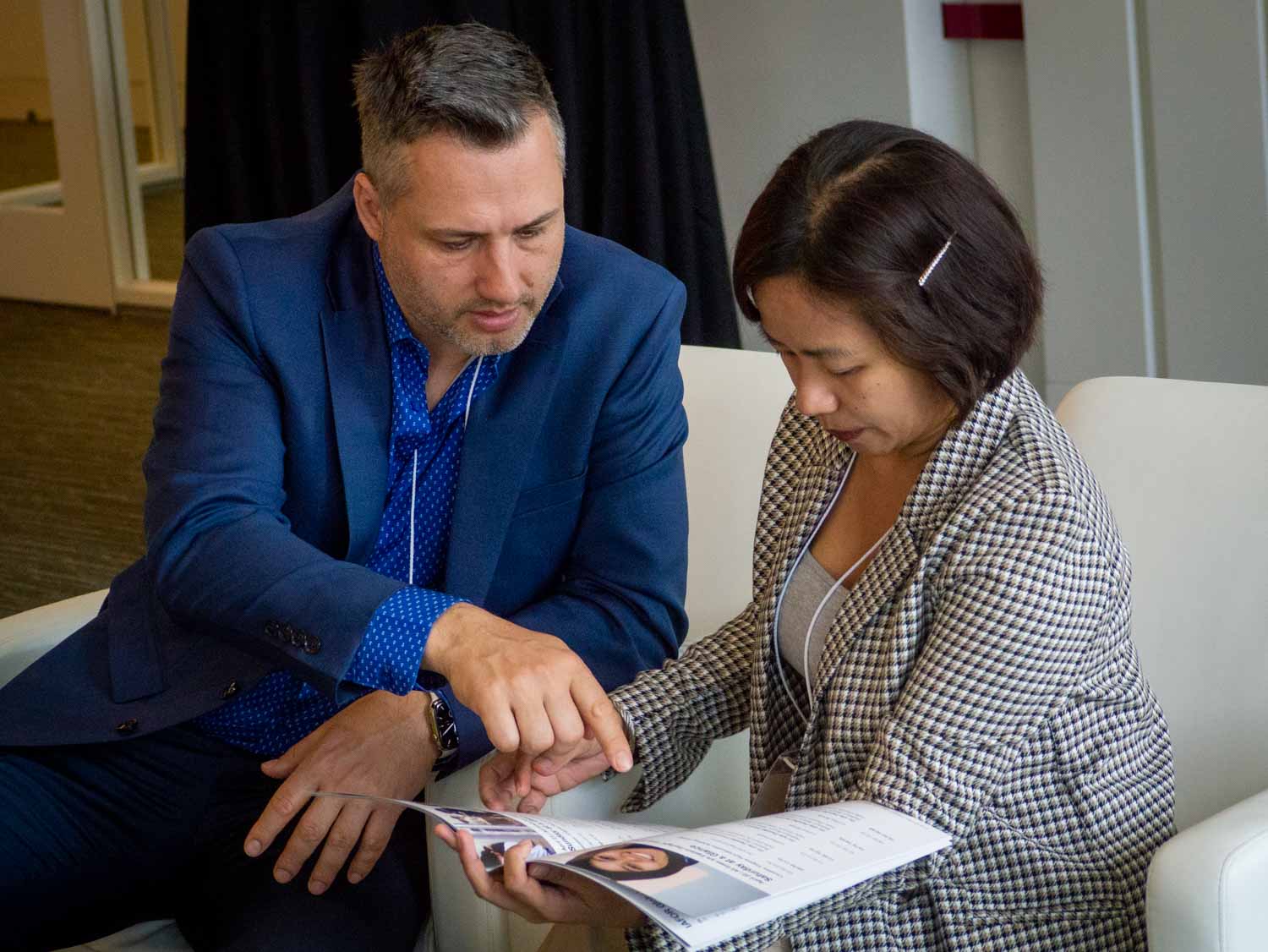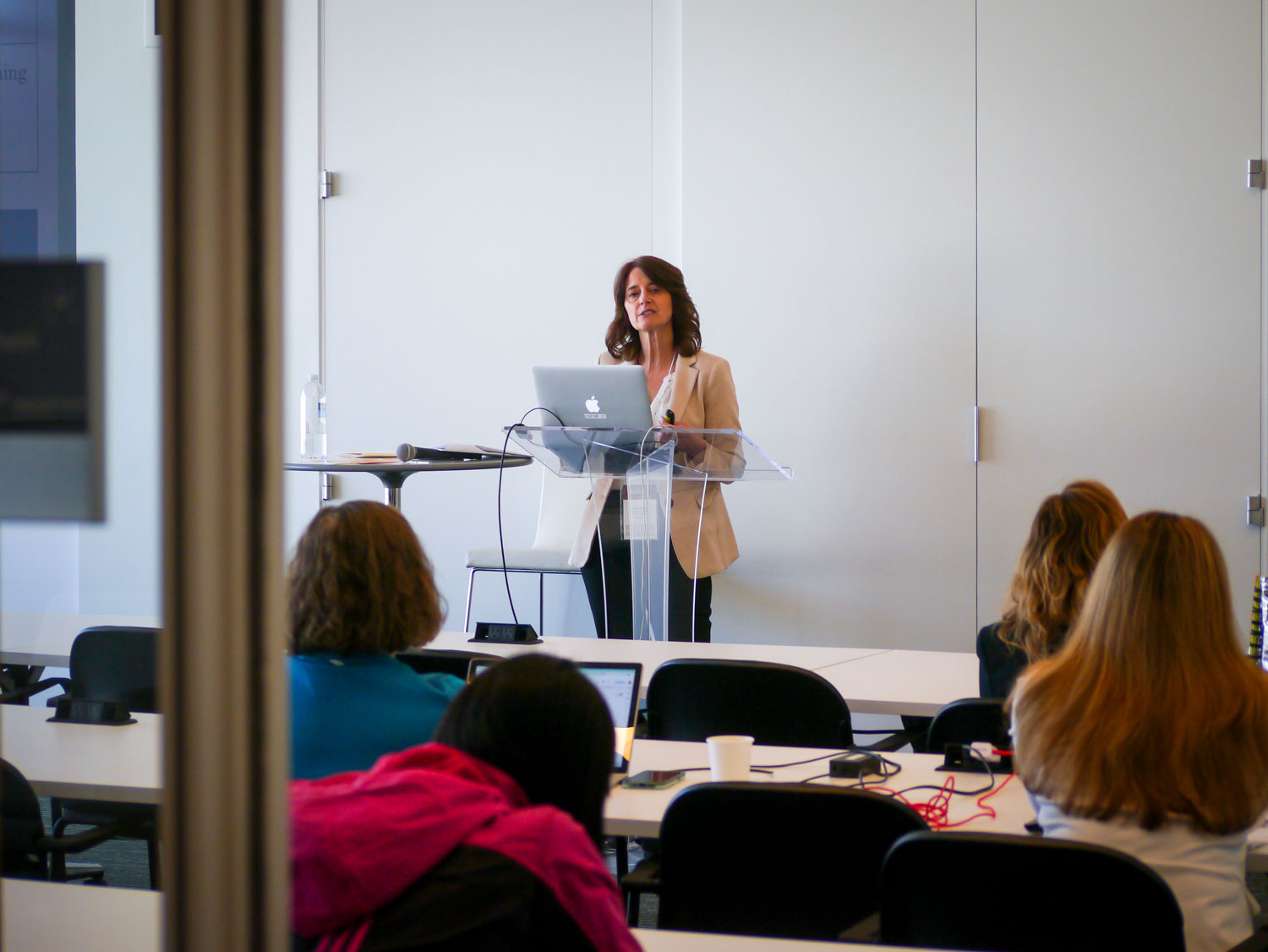Held between April 21-24 at Virginia Tech in Washington DC, The 3rd IAFOR International Conference on Educational Research and Innovation (ERI2023) successfully brought together professionals and academics focused on the evolving landscape of education. The emphasis on both research and innovation was evident throughout, offering participants a comprehensive understanding of contemporary educational methodologies and strategies.
This hybrid conference, held in partnership with Virginia Tech, exemplified IAFOR’s internationalising mission, bringing together 120 delegates from 42 countries.
Day one of the conference kicked off with a keynote from Dale Pike, an accomplished academic technology leader with over 29 years of experience in instructional technology and online learning in higher education. In the presentation, Mr Pike highlighted global challenges and opportunities in higher education, including demographic shifts and technological impacts like AI; the response involves enhancing faculty digital fluency, creating flexible learning methods, and integrating emerging technologies to deliver effective and adaptable learning experiences.
Dale Pike was followed by an enlightening interview with Tomoaki Ishigaki, the Minister of Congressional Affairs at the Embassy of Japan in the United States of America, led by Joseph Haldane, CEO & Chairman of IAFOR. The central theme of the interview focused on exploring the role of education in expanding perspectives beyond one's origins, including international experiences, while also highlighting the challenges and opportunities in cross-cultural collaboration and international education.
The final presentation of plenary day was a panel featuring Michael Menchaca, Chair of the Department of Learning Design and Technology at the University of Hawai'i at Manoa, and Kālewa Correa, Curator of Hawaii and the Pacific for the Smithsonian Institution's Asian Pacific American Center. The dynamic duo discussed how historical innovations have led to debates and disruptions, but the universal concern surrounding the rapid progress of artificial intelligence has prompted existential questions about the impacts of research, innovation, and technology on education and the future.
Days two and three were packed parallel presentation days held at Virginia Tech's Executive Briefing Center, before day four was held entirely online.
As we look towards future events, we are grateful to the speakers, participants, and Organising Committee for their commitment and contributions. For those who missed out, online catch-up options and high-quality recordings of plenary presentations are available on the conference website.
ERI2023 has once again underlined IAFOR's vision - a vision of academia's potential for positive change, and of its responsibility to promote and generate innovation, by connecting and educating. We look forward to seeing you again next year!

